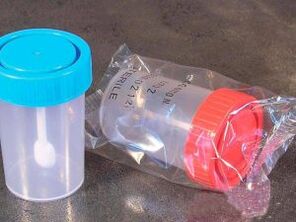Symptoms of the presence of a parasite in the body can often seem irrelevant and inexplicable, and although the thought is frightening, it is more common than many believe. There are many organisms in the world - different types of worms, protozoa that can parasitize almost all internal organs of a person and cause symptoms of various diseases. You can learn in this article what tests should be performed for parasites and when.
When do I have to take the test?

Parasitic diseases often occur through domestic contact when eating poorly washed vegetables and fruits, poorly processed meat, fish, raw water, as well as when children use common utensils and toys.
There are the following types of parasites:
- Protozoa (lamblia, amoeba, plasmodium malaria).
- Parasitic arthropods (demodex tick, the causative agent of pruritus).
- Parasitic worms (helminths).
The most common parasitic diseases are caused by helminths (worms) and occur in young children, pet owners and socially vulnerable people.
The main feature of parasites is their presence, which is not noticeable in the early stages. They do not manifest themselves for a long time after infection and cause obvious symptoms in the advanced stages.
You can recognize the presence of parasites in the body by the following manifestations:
- Swelling, gas, constipation, diarrhea, pain in the stomach and intestines.
- Decreased or increased appetite, postprandial anxiety.
- Unmotivated weight loss.
- Itching of the skin, unexplained rashes, dermatitis, urticaria.
- Pale skin, increased fatigue, or diagnosed anemia (mostly iron deficiency).
- Excessive work, sleep disorders (drowsiness, insomnia).
- Grinding teeth in sleep, prolonged cough.
If these symptoms occur, you should consult a general practitioner and be examined for parasites.
What tests to pass parasites

There are many studies that determine the presence of parasites (protozoa, arthropods, helminths) in the body.
Since the most common disease is helminthiasis, the best way to check for parasites is to do a stool test.
To perform a standard test, the patient must collect three separate stool samples from different areas of the same area in a sterile container and deliver the biomaterial to the laboratory as soon as possible. A doctor-laboratory assistant examines the samples under a microscope and can identify both live parasites and eggs.
A standard stool case for worm eggs is not always informative. Due to the life cycle characteristics of the parasites, the test sample may contain dead helminths or fragments of them that cannot be used to diagnose the disease instead of an egg or an adult.
An expanded fecal analysis using a polymerase chain reaction that provides more information. This technology allows the identification of helminth DNA, whether it is dead, hibernating, or whether only parts of the body have entered the material under study.
The test should be performed at least three times on different days to determine if there are any parasites in the body. According to statistics, the accuracy of a single study increases to 50%, and with a triple study - to 99%.
Another, less important assay is serological tests - the determination of antibody levels against the parasite. They can detect acute (IgM) and chronic or delayed helminthic invasion (IgG). They can also detect infection with parasites that cannot be found in the stool.
Some helminths parasitize the bile ducts and can also form cysts in the lungs, liver and brain. Appropriate clinical symptoms may be suspected and may be detected by serological tests, X-rays, CT or MRI, as well as biopsy.
Skin rupture and biopsy, specific tests (iodine) and serological tests are used to diagnose parasitic skin diseases (itching, demodicosis, certain types of helminths).
What tests should an adult take for parasites?

Adults are less likely to suffer from helminthiasis because they follow better personal hygiene, eat less unwashed fruits and vegetables in the garden, and have less contact with stray animals during play.
If there are certain non-specific complaints in adults (stomach and intestinal discomfort, prolonged itching of the skin, rash, weakness, fatigue, anemia), all patients should be tested for helminthiasis at the same time before admission to the hospital. as part of preventive research for certain categories of workers.
These include food industry workers, people working with children (kindergarten teachers and nurses, teachers, heads of sports departments). These individuals must be screened for enterobiasis and ascariasis.
Hunters and farmers should be regularly examined for trichinosis and strongyloidiasis; It is important that fishermen undergo a serological examination to detect opisthorchiasis. More information about which tests to perform in this or that situation can be obtained from the therapist.
What tests to transmit parasites to a child

Every child should undergo a complete diagnosis before going to kindergarten and primary school (if admitted, after a long break or illness) to identify worms and prescribe effective therapy against them. In addition, regular preventive examinations are carried out in preschools and schools to prevent the detection and spread of helminthic infections in the early stages.
To diagnose helminthiasis, children should have a general stool analysis and shave for perianal wrinkles.
Scraping is known as the most effective and accurate method for the diagnosis of enterobiasis (a disease caused by pinworms). During this time, before going to the toilet and the toilet of the perineum, a special cotton swab, a spatula or a small transparent tape is taken from the perianal folds, then applied to a glass slide and examined under a microscope. . In the event of a disease, the laboratory assistant will find pinworm eggs in the test material.
Treatment of parasitic diseases is prescribed by a doctor or pediatrician, in severe cases - by an infectious disease specialist. Therapy with skin lesions (with some helminths, pruritus or demodicosis) is chosen by a dermatologist.
If you suspect a parasitic disease, it is important not to delay contacting a specialist, as delays in treatment can lead to complications in the patient and at the same time increase the risk of transmitting the disease to others.




































